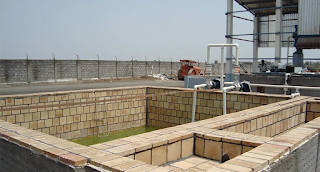Effluent treatment plants are necessaryto controlpollution
In this industrial blog, we are going to cover significant issues related to factory pollution, industrial discharge, and how to overcome the menace as pollution is leading to numerous problems.
Moving forward, let's understand the fundamentals related to the effluent treatment plant.
Learning about the effluent treatment plant
It is a sophisticated plant with the required machines and tools to treat wastewater and make it suitable for open discharging. The wastewater is treated on a wide range of parameters as described by the local government for the purpose. It is also called ETP in short. Talking about its main objective, it involves the treatment of wastewater as it comprises various pollutants.
Types of pollutants
These pollutants may be in the form of:
- Organic matter
- Inorganic matter
- Heavy metals
- Oil & grease
- Suspended solids
- Debris
- Dirt
- Grit
- Toxic
- Polymers
- Methane
- Carbon dioxide
- Nitrous oxide
- Sulfur oxides
Also, industrial discharge varies from factory to factory.
Treatment of pollutants and wastewater
According to industry experts, the effluents are treated through a comprehensive methodology. It can be either batch process or continuous flow process. In addition to these two common methods, there are a few others that are being used to treat effluents and industrial waste
The effluent treatment plant process
The effluent treatment plant process and wastewater treatment plants have been categorized into:
- Chemical treatment
- Biological treatment
- Combination of chemical and biological treatment
- Thermal treatment
water. Based on industrial pollutants, and wastewater discharged by a particular factory or process, manufacturers can use the ETP plant. Furthermore, you are advised to connect with leading ETP plant manufacturers. These are professionally trained people with vast experience.
Industries producing pollutants and industrial wastewater
Our life will become standstill without industries and industrial development. Can we imagine construction? What about automobiles? However, at the same time, it is important to strike a balance between development and the environment.
Here are a few industries that are using the effluent treatment plant process at their manufacturing site:
- Metal finishers
- Textile industry
- Chemical manufacturing
- Mining
- Oil & Gas
- Power plants
- Food processing
Benefits of effluent treatment plants
An effluent treatment plant provides plenty of benefits to not only industries but also to the environment as a whole. A few key benefits of using theater-pollution machines and tools have been covered in the following section:
- Helps to abide by the norms and guidelines of pollution control bodies, local governments
- It reduces the discharge of wastewater, pollutants from industries into the open environment
- Doesn’t put an extra burden on company finances
- Sets a precedent for others
- Helps in sustainable development
- Plays a role in making the environmentfree from pollution
Conclusion
Efforts should be made towards sustainable development. Socio-economic development can’t be imagined without industrial development. But it can’t be justified at the cost of pollution.
Start exploring the expertise of Arvind Corrotech in ETPs
Arvind Corrotech is an industry leader offering full-spectrum galvanization solutions. Our quality-driven product range includes Turnkey Hot Dip Galvanizing Plants, Pulse Fired High-Velocity Furnace, Process Tanks, Chemical Storage Tanks, and Pollution Control Equipment.
If you are on the lookout for anything related to repair and modification services for process tanks and galvanizing plants, then end your search with Arvind Corrotech. Let’s connect for a mutually beneficial collaboration.

.webp)
.png)
.webp)
Comments
Post a Comment